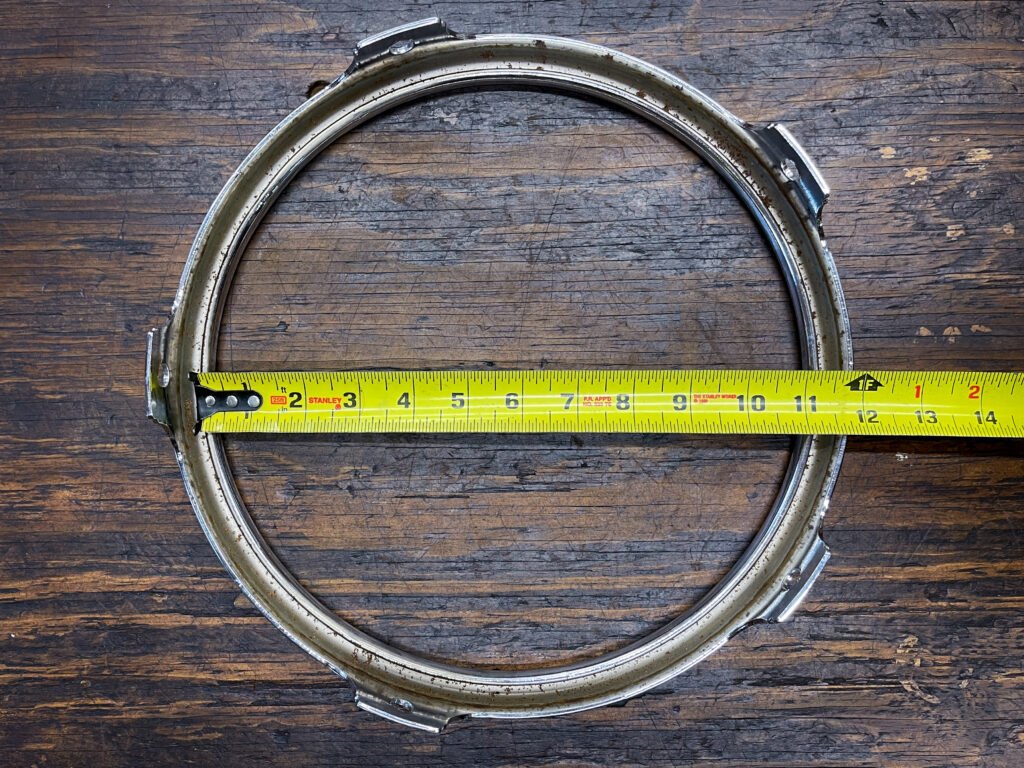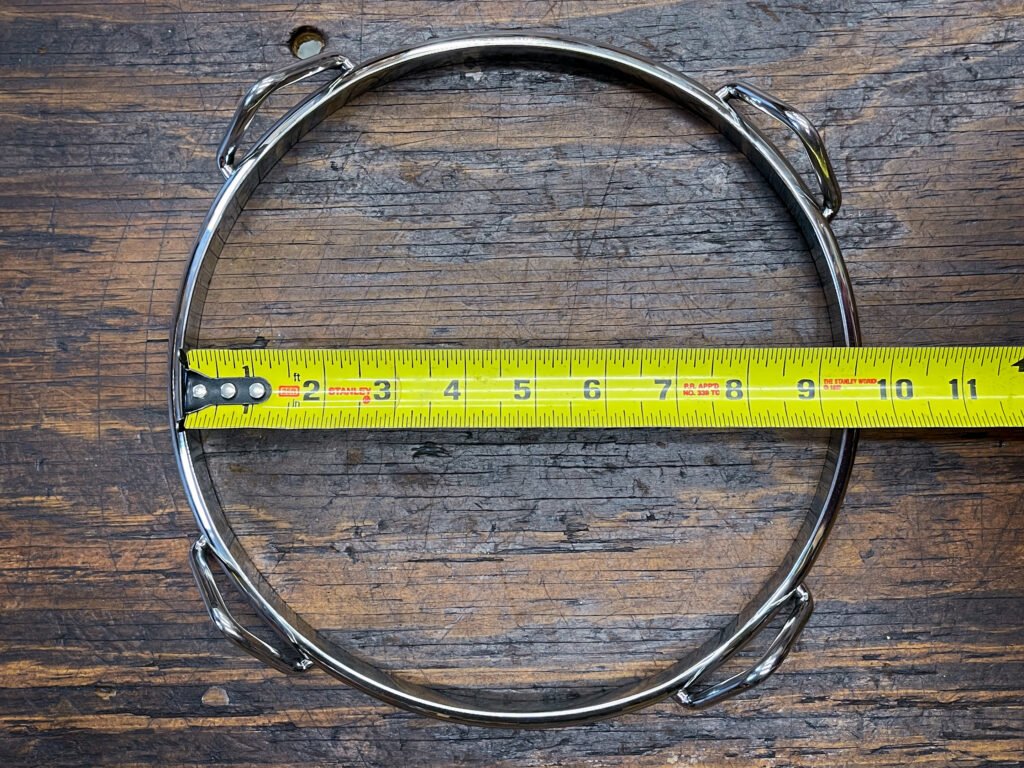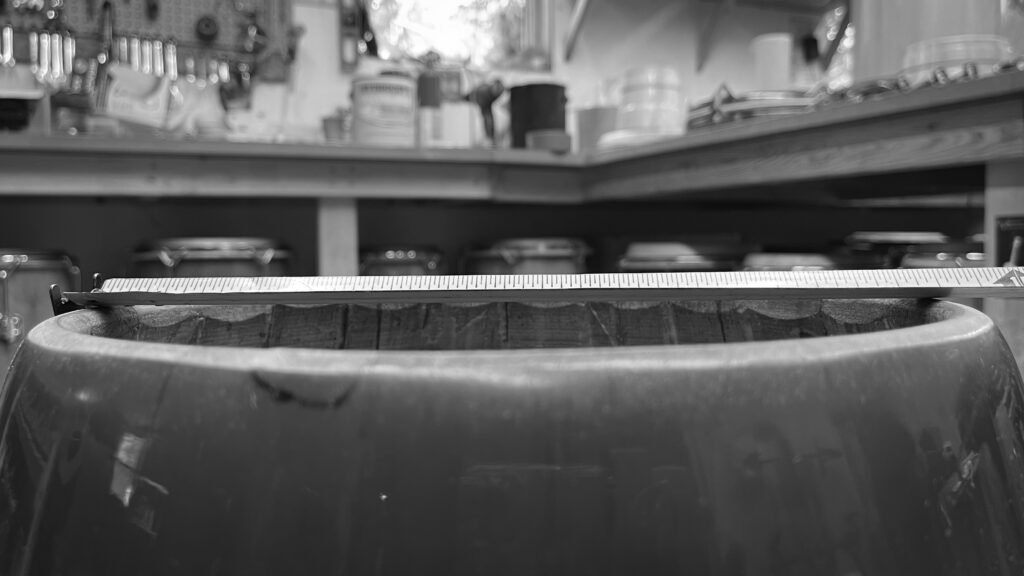FAQ
Black Gold™ Buffalo- Brazilian, warm tones, rich bass, medium action, slightly dimpled supple playing surface, not to be confused with Water Buffalo found on most factory made drums.
Fat Cat™ Buffalo- Middle Eastern Nili Ravi, dry/woody tones, low action at thickness above 2.5mm, slightly dimpled and dense playing surface, ideal for folkloric styles, not to be confused with Water Buffalo found on most factory made drums
Horse- Peruvian, very crisp slaps, bright and resonant tones, has lively action, ultra smooth and forgiving playing surface, tough yet thin skin for high tuning- especially bongo macho
Steer (Middle East)- Middle Eastern Steer, warm and classic with crisp slaps, round open tones, rich bass, controlled overtones, live action, smooth and somewhat supple playing surface, most versatile skin type we offer, ideal for live and studio, our shop favorite for congas and bongo hembras
Steer (Peru)- Peruvian, crisp slaps, round open tones, rich bass, highly controlled overtones, warm and classic, medium action, ideal for studio
Ultra Thin Calf- Middle Eastern, very crisp slaps, very bright and resonant, perfect for timbales, drumset, frame drums, tambourines, pandeiros, djembes and many other drum types
A steer is a castrated male, a cow is a female, and a bull is a male. The main difference in the tonal quality of the skins comes from the level of the testosterone in the animal. Testosterone in bulls produces a hide that is thick, dense and tough.
When it comes to the rawhide, there is very little difference between cow and steer. Most tanners will tell you they can’t tell the difference between them after the hide has been processed. The way that they are processed can make more of a difference in the look, feel and sound than the sex of the animal. I have found that mostly what people want when they ask for cow is a skin that looks lighter in color. The color is due to processing with lime or certain other chemicals, and it also gives a different sound characteristic than the way our steer skins are processed.
Bull rawhide is normally much thicker and harder than steer or cow. I don’t normally use bull for drums because it doesn’t resonate as freely, is harder to get a good sound from, and can be very hard on the hands.
In the past we offered what we thought were thick “mule” skins for congas, but a DNA test from a major agricultural university revealed that they had absolutely no horse, mule or donkey (equine) genetics. They did have bovine DNA markers, and were likely Nili Ravi water buffalo marketed as mule.
We call this skin Fat Cat™ Buffalo. It is Middle Eastern Nili Ravi, and produces dry/woody tones and has low action at thickness above 2.5mm. The playing surface is slightly dimpled and dense- ideal for folkloric styles. It is available as a Flat Skin or PreMounted™ Drum Head.
For bongo machos, we have changed to using horse skin. Horse is a bit brighter than mule skin, yet it is every bit as tough and tonal.
Premium PreMounted™ drum heads are natural skins mounted on stainless steel flesh hoops. They are designed to fit drums with specific shells sizes and crown types right out of the box. A wide variety of skin types, thicknesses and three color options make your PreMounted™ heads fully customizable to suit any application.

PreMounted™ heads are hand crafted. Production times vary based on thickness, color and order volume. The typical required drying time for a 2.2mm skin is one week.
Skin Types
Black Gold™: Brazilian buffalo, warm tones, rich bass, medium action, slightly dimpled supple playing surface
Fat Cat™: Middle Eastern Nili Ravi buffalo, dry/woody tones, low action, smooth and dense playing surface, ideal for folkloric styles
Horse: Peruvian horse, very crisp slaps, bright and resonant, ideal for bongo macho
Steer (Peru): Peruvian steer, crisp slaps, round open tones, rich bass, highly controlled overtones, warm and classic, medium action, ideal for studio
Steer (Middle East): Middle Eastern steer, crisp slaps, round open tones, rich bass, controlled overtones, warm and classic, medium action, very smooth and somewhat supple playing surface, ideal for live and studio, our shop favorite for congas, bongo hembra and djembe
Calf: Middle Eastern calf: brightest and most resonant, high level of overtones, ideal for timbales
Available skin colors: natural, amber, chocolate
It is rare, but should you experience any kind of fitment issue, please contact us at info@manitopercussion.com before proceeding. We have solutions.
A thicker skin will control overtones (ring) produced by any drum. The thicker the skin, the dryer and more woody the sound becomes. Skin thickness is recommended relative to the shell size- the larger the shell, the thicker the skin. This produces a balanced sound across the entire set of drums. Fiberglass shells require even thicker (+ .2mm) skins than the recommended thickness for wooden drums below.
Warm and classic sound with crisp slaps, round open tones, rich bass and controlled overtones:
Bongo Macho: 1mm
Bongo Hembra: 1.4mm
Requinto: 1.8mm
Quinto: 1.8mm
Conga: 2mm
Tumba: 2.2mm
Super Tumba: 2.4mm
Djembe: 1mm
Bright and resonant sound with very crisp slaps, longer sustain and less overtone control:
Bongo Macho: .8mm
Bongo Hembra: 1.2mm
Requinto: 1.6mm
Quinto: 1.6mm
Conga: 1.8mm
Tumba: 2mm
Super Tumba: 2.2mm
Djembe: .8mm
Dry and woody sound with crisp slaps, shorter sustain and highly controlled overtones:
Bongo Macho: 1.2mm
Bongo Hembra: 1.6mm
Requinto: 2mm
Quinto: 2mm
Conga: 2.2mm
Tumba: 2.4mm
Super Tumba: 2.6mm
Djembe: 1.2mm
Traditional very dry and woody sound with the shortest sustain and next to no overtones.
Bongo Macho: 1.4mm
Bongo Hembra: 1.8mm
Requinto: 2.2mm
Quinto: 2.2mm
Conga: 2.4mm
Tumba: 2.6mm
Super Tumba: 2.8mm
Djembe: 1.4mm
Skin thickness is recommended relative to the shell size- the larger the shell, the thicker the skin. This produces a balanced sound across the entire set of drums.
Warm and classic sound with crisp slaps, round open tones, rich bass and controlled overtones:
Bongo Macho: 1mm
Bongo Hembra: 1.4mm
Requinto: 1.8mm
Quinto: 1.8mm
Conga: 2mm
Tumba: 2.2mm
Super Tumba: 2.4mm
Djembe: 1mm
Bright and resonant sound with very crisp slaps, longer sustain and more overtones:
Bongo Macho: .8mm
Bongo Hembra: 1.2mm
Requinto: 1.6mm
Quinto: 1.6mm
Conga: 1.8mm
Tumba: 2mm
Super Tumba: 2.2mm
Djembe: .8mm
Dry and woody sound with crisp slaps, shorter sustain and highly controlled overtones:
Bongo Macho: 1.2mm
Bongo Hembra: 1.6mm
Requinto: 2mm
Quinto: 2mm
Conga: 2.2mm
Tumba: 2.4mm
Super Tumba: 2.6mm
Djembe: 1.2mm
Traditional very dry and woody sound with the shortest sustain and next to no overtones.
Bongo Macho: 1.4mm
Bongo Hembra: 1.8mm
Requinto: 2.2mm
Quinto: 2.2mm
Conga: 2.4mm
Tumba: 2.6mm
Super Tumba: 2.8mm
Djembe: 1.4mm
Flat skin size is determined by the size of the shell. A properly sized skin is large enough to make mounting easy.
We recommend the following sizes:
Bongo Macho: 14″
Bongo Hembra: 16″
Requinto: 18″
Quinto: 20″
Conga: 20″
Tumba: 20″
Super Tumba: 22″
Djembe: 24″
We spend a lot of time choosing the right suppliers and building long term relationships with the most skilled tanners we can find. A great deal of time is spent sampling new skins from processors, and we only choose the best skins for our drums and yours. We cut whole cow, steer and horse hides into rounds that are A+ quality so our customers don’t have to worry about receiving skins that are of inferior quality. There is often a good deal of loss and extra skin from whole hides that we just can’t use for a variety of reasons. At Manito Percussion, we also offer a very liberal exchange and refund policy to make sure that the skins our customers receive are exactly what they want for their drums. Our quality and prices reflect a commitment to you, the musicians dedicated to the art of drumming!
Having an even thickness is important in choosing any skin, but some small variation is ok and sometimes preferable. I know, some of the drummers out there just gasped! I’m not a big fan of sanded or planed skins which are processed to have perfectly even thickness. There is something too clear that happens in the tone, a sort of loss of warmth. I often compare it to the way Pan Flutes are made in Peru. When they’re first tuned it’s to perfect intervals. They then go back and push the tuning ever so slightly out of perfection because it just sounds better, more organic to our ears. Much like the gain knob on an amplifier, it gives the skin some growl and meatiness that feels and sounds more natural and less processed.
Manito Percussion Congas and drums are guaranteed to be free from defects in workmanship for 5 years from the date of purchase. Non-transferrable. Original owner only. Misuse or modification voids warranty.
Custom Hardware carries a lifetime limited warranty for repair or replacement. Warranty covers defects in materials or workmanship. Buyer pays return shipping. If defect is deemed to be caused by workmanship or material failure, all shipping charges will be credited to the buyer. Fully custom hardware items that are not kept in stock can not be canceled once work has started and are not eligible for returns or exchanges unless damaged or defective.
Flat skins and PreMounted heads carry a 60-day limited warranty. Warranty covers defects in materials or workmanship. Flat skins and PreMounted heads may be exchanged for another flat skin or PreMounted head if unused and in original condition only. Skins may not be exchanged if buyer soaks, cuts or applies any oils or conditioners. Buyer pays return shipping. If defect is deemed to be caused by workmanship or material, all shipping charges will be credited to the buyer.
Some international orders may incur fees/duties consistent with international trade law and/or specific carriers.
Customers give consent to receive one email invitation to review their order.
The hardware parts of a modern hand drum include the crown, tuning lugs, side plates or bottom rim. We fabricate our custom hardware from 304 stainless steel.


To determine flesh hoop size, uninstall the current natural skin head, measure the outside diameter and subtract 1/8″ from the measurement. Make sure to bisect the head into two equal parts with the edge of the tape.

For traditional and comfort curve crowns, measure the outside diameter of the raised or rolled ring on the bottom of the crown and add 3/16″ to the measurement.



For moderna crowns, measure the inside diameter and add 11/16″.

The three basic crown types are traditional, comfort curve and half round moderna.
Traditional Crown

Comfort Curve Crown

Half Round Moderna Crown

Manito Percussion hand drums can be purchased from our Drums Available page. We also maintain a wait list for potential customers with specific requirements or desires. Please contact us via info@manitopercussion.com to get on the wait list.
Manito Percussion is an independent custom hand drum workshop located in lush Athens, Georgia. We specialize in solid shell congas, bongos, bata, bombas, djembes and other drums. We unite art and science to create instruments that speak to the ears, eyes and hands.
Each solid shell drum is precision handcrafted from sustainably harvested, local hardwood logs. Our designs marry art, physics of sound creation, environmental responsibility and the natural beauty that only solid shells can offer. We believe beautiful music should exist in harmony with nature. We also offer our custom stainless steel hardware, a variety of skins for drums, and PreMounted drum heads.
In order to determine drum shell size, uninstall the head and measure the outside diameter of the bearing edge. Let the tape hang down the side of the shell so that it sits flush against the bearing edge.
How To Measure Drum Size
This is an 11″ quinto.

